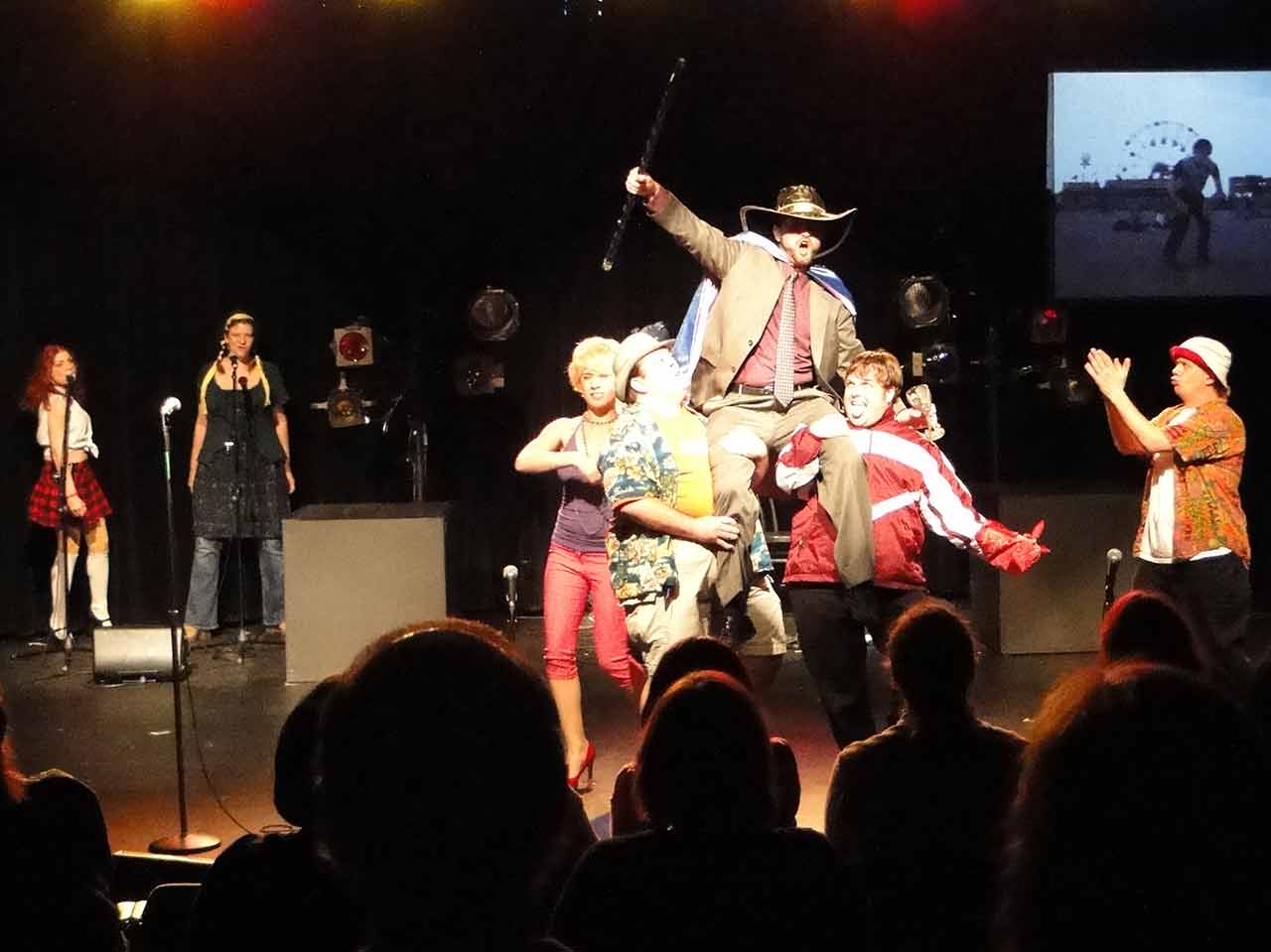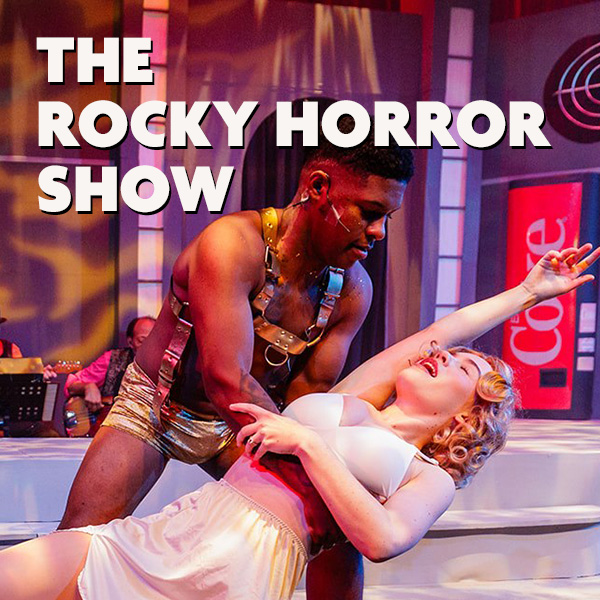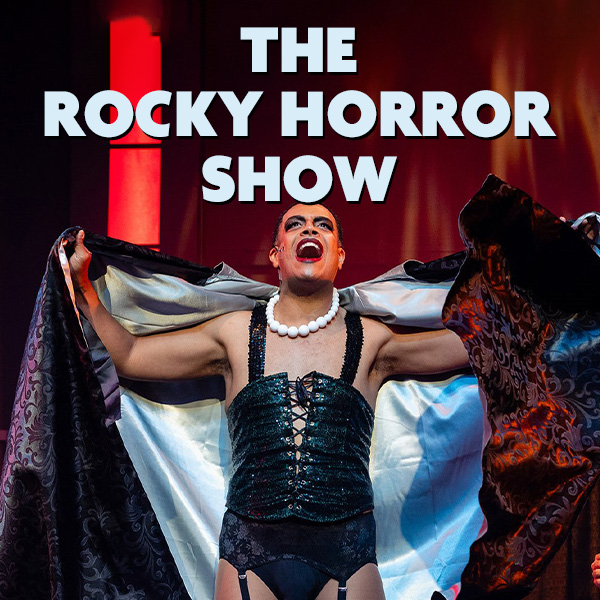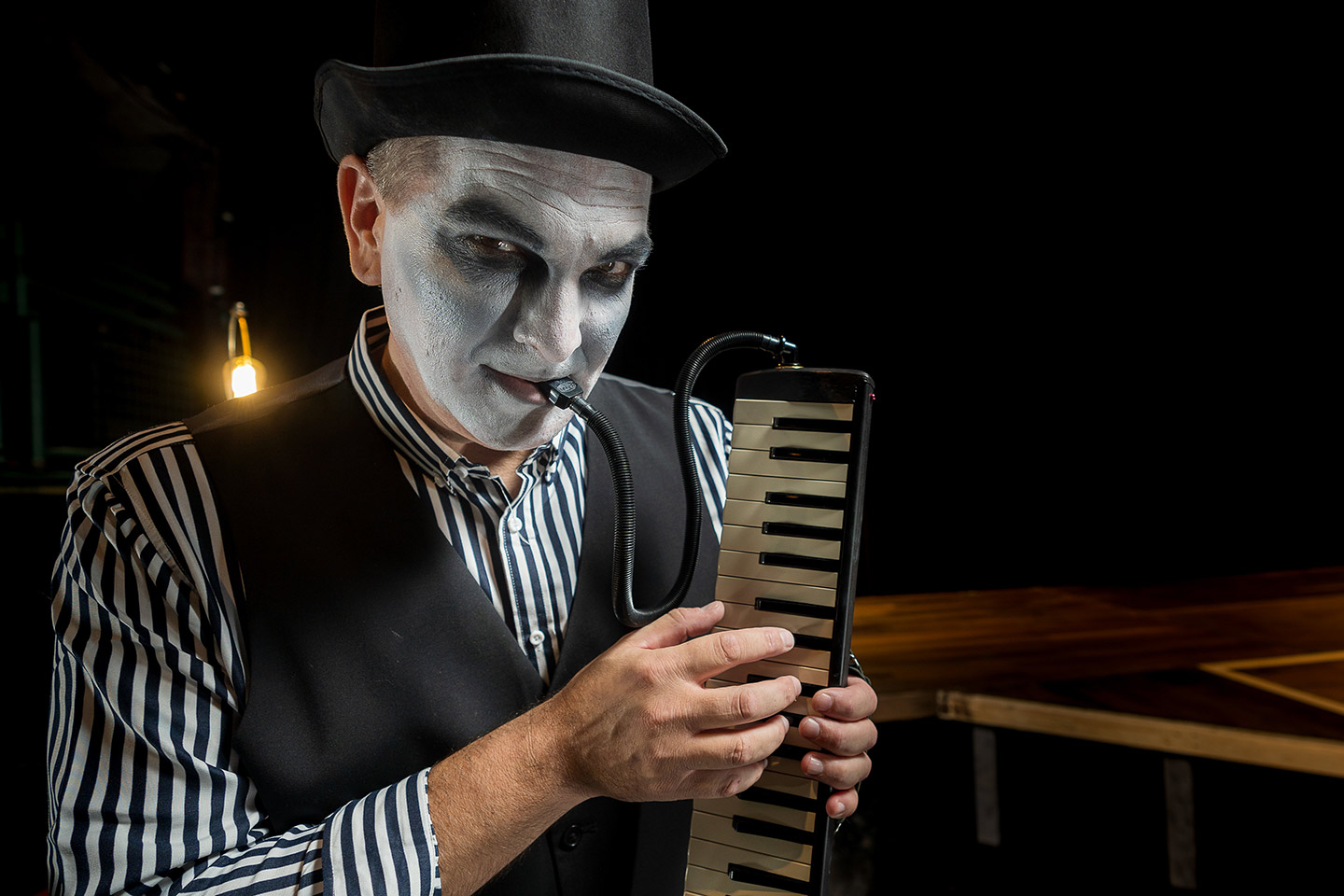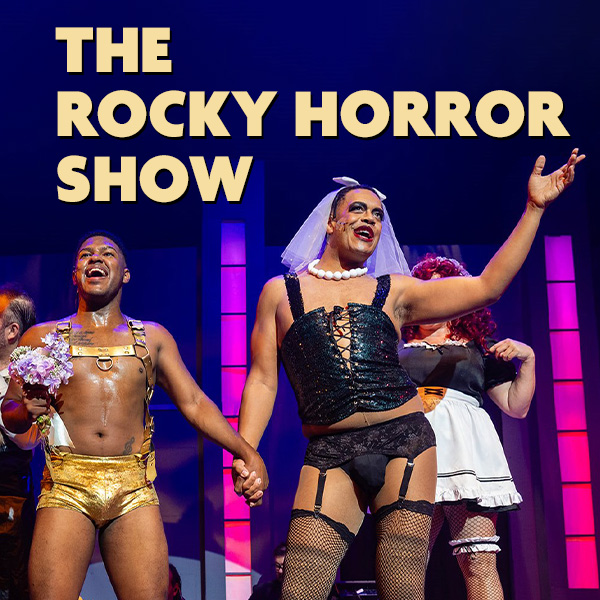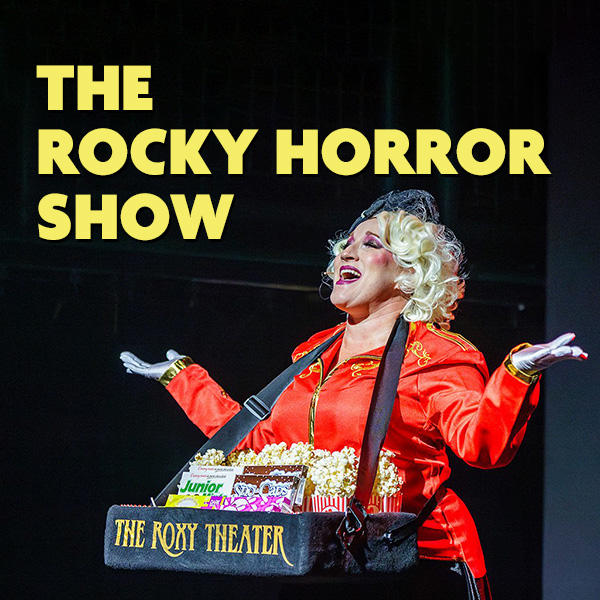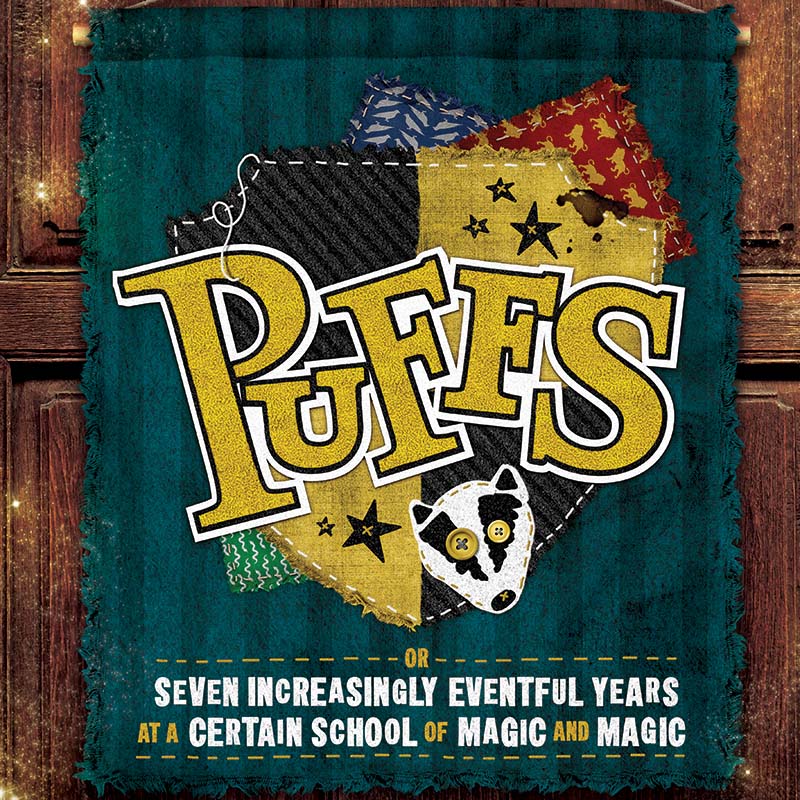Today I meet with composer Jeremy Douglass and aerial/circus choreographer Katrina Stevenson to talk about A Midsummer Night’s Dream, going into rehearsal in mid-December. I’m so excited to finally sit down with these two after who-knows-howmany email chains and shared files over a coffee in what Jeremy calls “meatspace” to dig in a little deeper as to our approach. The show is cast, we know the tools we have in front of us, and now we begin to refine our vision as to what exactly we bring to the stage in January. This is a very collaborative process, perhaps the most collaborative approach we’ve had for Shakespeare.
That’s to say this is a very democratic process. I’m not just telling people what to do or how I see things. I’m not a composer or an aerial choreographer. I want to hear what they see, I want to see what they hear.
 We’ve now produced Shakespeare for 18 years. Not every single year, for the first half of that we averaged every two years, but it’s been consistent. Between 2001 and 2005 we also offered up The Complete Works of William Shakespeare (abridged) about umpteen times (audiences just enjoyed the [revised] version of that as part of our 20th anniversary season). One time we even completely tossed the original script and drafted a punk rock musical only loosely based on the source material with Pericles: Prince of Tires.
We’ve now produced Shakespeare for 18 years. Not every single year, for the first half of that we averaged every two years, but it’s been consistent. Between 2001 and 2005 we also offered up The Complete Works of William Shakespeare (abridged) about umpteen times (audiences just enjoyed the [revised] version of that as part of our 20th anniversary season). One time we even completely tossed the original script and drafted a punk rock musical only loosely based on the source material with Pericles: Prince of Tires.
Through that time I’ve seen our audiences for these shows explode, even if some of our core fans are split in opinion about us doing them. Ok, more bluntly, I’m aware some of y’all haaaaaate Shakespeare and give your seats to those shows up to a friend every year. That’s ok, some others of you hate comedies or musicals or …
 It’s worth noting that Othello is now our best-selling show of all time by a wide margin. Five of our top 10 best-sellers are Shakespearean. Maybe also worth noting is that another three of them are still otherwise literary titles (Dracula, The Hound of the Baskervilles, 1984). You fancy, Tampa.
It’s worth noting that Othello is now our best-selling show of all time by a wide margin. Five of our top 10 best-sellers are Shakespearean. Maybe also worth noting is that another three of them are still otherwise literary titles (Dracula, The Hound of the Baskervilles, 1984). You fancy, Tampa.
I suppose that, based on all these numbers, we might assume that we run a solid chance of being recognized as that “Shakespeare company” or that “theater that stages literature” from folks who see shows here and there but who are not “part of the choir.” We could be associated with worse. I’m just happy maybe that means the average person no longer thinks we’re the company that “does those weird plays.”
We tried for years to make this event bigger and bigger and get it out into Curtis Hixon Park and find sponsors and make it free like the Public did in Central Park. Apparently, Tampa still isn’t ready for that. Another local organization, TampaShakes, even gave it a more-than-valiant effort after we abandoned the idea. Too many roadblocks/hurdles, most of them financial. We instead focused on what we do have.

We do what we can to make this annual production accessible. We offer at least 600 tickets for weekday field trip matinees at no charge to schools in need. The rest of the field trip tickets are sold at an average price of $7.50. The more sponsors we find to underwrite those tickets, the more we can offer (and if you wanna talk to me about that …). Students, persons 65+, military folks/vets and their families all get 50% off tickets to our standard mainstage performances. And, not for nothing, our starting ticket prices are very fair in comparison to other professional regional companies.
But accessibility isn’t just about cost — though for many it is a true barrier. I believe that value is perceived, and that $29.50 for a theater ticket — or half that for the folks who qualify — is nothing in comparison to what people often seem to have no problems with ponying up for: concert, sporting, or comedy tickets; theme park and fan-centric convention entries; craft beer or avocado toast.
So, we have to give people no other choice than to make sure they don’t miss it. Engage them at whatever that level is. There is no one-size way to do this.

First and foremost we start with the experience itself. We’re up close and personal, the audience seated on three sides of the stage. Most are within 15 feet of the actors. Characters make eye contact and speak directly to audience members in asides. We make sure that we hire quality performers and provide training to those who may not have as much experience with this kind of work. It has to start and end with the words. Our job is to make the audience listen to and understand these 400-year old plays. As John Barton of the RSC noted in Playing Shakespeare, they won’t bother otherwise. These are the kinds of performances an actor has to lean into even more actively in terms of being audience-centric.
 Making this experience accessible also means answering the “so what?” or “why should I care?” questions. I know some folks think it gimmicky to set The Merry Wives of Windsor during the Reconstruction or offer us a Julius Caesar that looks like Washington DC today, but I disagree. We have to set the play somewhere, and why not work toward giving the audience added value in terms of context? I find it interesting to consider how an Othello set in modern-ish military context illuminates/distorts inherent things about the text AND allows a modern audience to feel more connected to it. It excites me to know that the introduction of high-spectacle elements like aerial silks and circus skills, video projection, and original music allows an audience to get swept away that much more by the magic of The Tempest. We don’t do any of this to hide the language, but to enhance it.
Making this experience accessible also means answering the “so what?” or “why should I care?” questions. I know some folks think it gimmicky to set The Merry Wives of Windsor during the Reconstruction or offer us a Julius Caesar that looks like Washington DC today, but I disagree. We have to set the play somewhere, and why not work toward giving the audience added value in terms of context? I find it interesting to consider how an Othello set in modern-ish military context illuminates/distorts inherent things about the text AND allows a modern audience to feel more connected to it. It excites me to know that the introduction of high-spectacle elements like aerial silks and circus skills, video projection, and original music allows an audience to get swept away that much more by the magic of The Tempest. We don’t do any of this to hide the language, but to enhance it.
More people come to our Shakespeare productions than to any other genre we offer. So, again, I think we have to be doing something right with our approach. Right?
 In addition to the training we offer, the quality of our performers, the strength of the ensemble we have developed, the uniqueness of the actor-audience relationship in our space, and the audience-centric approach to how we conceptualize and provide context there is one last important factor: the folks on stage have to look like the folks in our community. That requires a commitment to to what some call “color-conscious casting.” I do prefer that term over what was once called “color-blind” casting, because there can be no such thing. I make it my responsibility to make sure that the world on stage, the physical bodies that inhabit it, well, represent.
In addition to the training we offer, the quality of our performers, the strength of the ensemble we have developed, the uniqueness of the actor-audience relationship in our space, and the audience-centric approach to how we conceptualize and provide context there is one last important factor: the folks on stage have to look like the folks in our community. That requires a commitment to to what some call “color-conscious casting.” I do prefer that term over what was once called “color-blind” casting, because there can be no such thing. I make it my responsibility to make sure that the world on stage, the physical bodies that inhabit it, well, represent.
Which of course goes past color, so even to call it “color-conscious” is incomplete. It includes gender/gender identity, age, and ability.
 Many agree that the basic act of watching theater has always been democratic for an audience and so is one of theater’s most valuable contributions to society, but casting itself is an inherently elitist activity. This puts us at a distinct disadvantage in the theater if our goal is to try to engage. If an audience member cannot see themselves or their experience somehow reflected in the world of a play, our work is that much harder to make them care (this is particularly compounded by Very Old Texts). If an audience member consistently doesn’t see themselves somehow represented onstage it will likely end one of two ways: 1) a decision that the form itself is just not for them because it is irrelevant or, much worse, 2) they receive a message, even if only subconsciously, that somehow they must not count as people.
Many agree that the basic act of watching theater has always been democratic for an audience and so is one of theater’s most valuable contributions to society, but casting itself is an inherently elitist activity. This puts us at a distinct disadvantage in the theater if our goal is to try to engage. If an audience member cannot see themselves or their experience somehow reflected in the world of a play, our work is that much harder to make them care (this is particularly compounded by Very Old Texts). If an audience member consistently doesn’t see themselves somehow represented onstage it will likely end one of two ways: 1) a decision that the form itself is just not for them because it is irrelevant or, much worse, 2) they receive a message, even if only subconsciously, that somehow they must not count as people.
 From a Guardian article earlier this year: “If public funds are going to be used to put on Shakespeare’s plays [it] is only fair that a range of actors gets the chance to be in them. As our understanding of identity and inequality becomes more complex, it is stimulating to see the dynamics of human relationships explored in different ways. Drama should open the minds of audiences, as well as opportunities for actors.” I couldn’t agree more. We are funded by both the county and the state, and should consider that as we spend taxpayer dollars. In addition to the 17+ public performances of Shakespeare we offer we can do up to 16 additional performances as weekday field trips for middle and high school students. We have a responsibility here to do all we can.
From a Guardian article earlier this year: “If public funds are going to be used to put on Shakespeare’s plays [it] is only fair that a range of actors gets the chance to be in them. As our understanding of identity and inequality becomes more complex, it is stimulating to see the dynamics of human relationships explored in different ways. Drama should open the minds of audiences, as well as opportunities for actors.” I couldn’t agree more. We are funded by both the county and the state, and should consider that as we spend taxpayer dollars. In addition to the 17+ public performances of Shakespeare we offer we can do up to 16 additional performances as weekday field trips for middle and high school students. We have a responsibility here to do all we can.
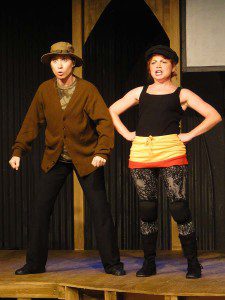 This can be terrifyingly fraught territory. It’s not just a matter of changing up a role and have a woman or genderqueer performer play a part written for a man, or to cast actors of color in a play set hundreds of years ago in Scotland. Each time we create a disruption like this we have to carefully consider the implications of how an audience today will likely experience that choice, or what it may possibly “say” in the overall world of the play we are creating. This requires me to be open and honest with the actors I work with and own that they may feel and experience things differently than I intended, and that I need them to tell me when there is a problem. I recognize, to paraphrase Gayatri Spivak, that my privilege is my loss.
This can be terrifyingly fraught territory. It’s not just a matter of changing up a role and have a woman or genderqueer performer play a part written for a man, or to cast actors of color in a play set hundreds of years ago in Scotland. Each time we create a disruption like this we have to carefully consider the implications of how an audience today will likely experience that choice, or what it may possibly “say” in the overall world of the play we are creating. This requires me to be open and honest with the actors I work with and own that they may feel and experience things differently than I intended, and that I need them to tell me when there is a problem. I recognize, to paraphrase Gayatri Spivak, that my privilege is my loss.
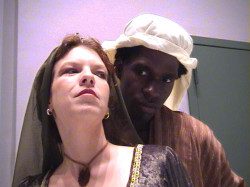 Before I go any further, I’d like to be clear that I do not delude myself into thinking that this approach to Shakespeare is somehow fixing all the inequality in the world. These are still centuries-old plays written by a cishet white European dude (or were they?), and a lot of them are problematic AF. They can’t get at the black experience, or the LGBTQ+ experience, or the Appalachian experience somehow better than the actual members of those communities — and I don’t expect them to. As stated in the Guardian article referenced above, casting choices like these “should amplify, rather than replace, demands for a sector that is more representative overall, including of different social classes.”
Before I go any further, I’d like to be clear that I do not delude myself into thinking that this approach to Shakespeare is somehow fixing all the inequality in the world. These are still centuries-old plays written by a cishet white European dude (or were they?), and a lot of them are problematic AF. They can’t get at the black experience, or the LGBTQ+ experience, or the Appalachian experience somehow better than the actual members of those communities — and I don’t expect them to. As stated in the Guardian article referenced above, casting choices like these “should amplify, rather than replace, demands for a sector that is more representative overall, including of different social classes.”
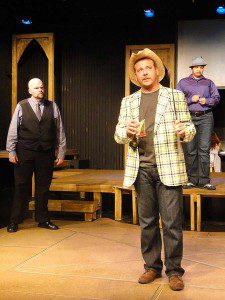 My personal story — my experience with theater from the very beginning — has always been rooted in class. I never went to theater until high school, when I started doing theater. I had teachers who judged me harshly over my very southern accent (which I then worked hard to lose), and was made to feel set apart from ‘fancier’ classmates who had cleaner diction. I struggled with a lot of “so what/who cares?” questions. But now these plays are hands-down some of my favorite things to do. All it took was a point of entry and someone meeting me halfway when I was 14.
My personal story — my experience with theater from the very beginning — has always been rooted in class. I never went to theater until high school, when I started doing theater. I had teachers who judged me harshly over my very southern accent (which I then worked hard to lose), and was made to feel set apart from ‘fancier’ classmates who had cleaner diction. I struggled with a lot of “so what/who cares?” questions. But now these plays are hands-down some of my favorite things to do. All it took was a point of entry and someone meeting me halfway when I was 14.
I often say that “I can be part of the problem or part of the solution” as an artistic leader. I’m trying to do the latter. I’m hoping that every single person who comes through those doors, be they 16 or 61, walks out feeling like they were a part of it. That as many folks as possible are engaged. I know we can still do better, and we will (for instance there are limitations with our backstage space that make it a challenge we have yet to overcome to properly hire actors who require the use of a mobility aid).
All I can do is my best, and this is a marathon not a sprint.
I can’t wait to tell you more about where we’re going with this show as we proceed!

